- info@carbocraft.co.za
- 011 234 0675
- MONDAY-THURSDAY 8:30-4:30 FRIDAYS 8:30-3:30
Cellulose + Lignocellulose + Wood Fibre
Cellulose is in essence plant fibre and is naturally found in the walls of various plants, trees and vegetables. Lignocellulose refers to plant-dry-matter and is a biomass consisting of lignin, cellulose and hemicellulose. Wood fibres are cellulosic materials extracted from trees and are commonly used to make paper and construction materials, and typically used as process aids in a myriad of highly diverse application fields. CARBOCRAFT is a leading specialist supplier of cellulose, lignocellulose and wood fibre, thanks to a long and successful partnership with German manufacturer JELU-WERK!

JELUCEL® + JELUXYL® + JELUVET®
When one breaks it down, cellulose is a complex carbohydrate, often referred to as a structural polysaccharide, that is found in the cell walls of plants. It is one of the most abundant organic compounds on Earth and serves as a vital component in the structure and function of plant cells. The chemical structure of cellulose consists of long chains or strands of glucose molecules linked together through beta-1,4-glycosidic bonds. These chains align parallel to each other and form strong, extensive networks known as microfibrils. These microfibrils lend cellulose, lignocellulose and wood fibre their extremely high functionality as highly efficient process aids!
Our functional fibres are 100% natural, simple and effective! Manufactured from renewable resources and completely environment-friendly, we supply these highly innovative products under the brands JELUCEL®, JELUXYL®, JELUVET® and JELUPLAST®! Coupled with the unique and innate ability to add and manipulate texture through the formation of a three-dimensional fibre network (on account of the microfibrils), our insoluble fibres have an extremely high water and liquid-binding capacity. This feature enables them to do an excellent job as a versatile binder in countless industry applications.
Our multi-functional fibres MADE IN GERMANY are extremely versatile and add considerable value to innumerable production processes as technical “trouble-shooters” and “problem-solvers” across immeasurable industries. Here is a brief synopsis of WHY and WHERE and HOW our fibres add value:
- Highly pure, powdery, fibrous, water-insoluble cellulose with cellulose content of 75% to 99.5% (our products are available in varying purities, fibre lengths, thicknesses and liquid-binding capacities depending on the application)
- Very fine particle sizes with fibre lengths ranging from 10 μm up to very coarse grades with 2,000 μm (the greater the fibre length, the higher the thickening effect and functionality).
- 100% natural, produced from renewable resources, bio-degradable and environment-friendly, completely safe to work with.
- Insoluble in water and organic solvents, with a high thermal and chemical stability, resistant to dilute acids and bases.
- Due to the insoluble nature of our cellulose products and the inherent fibrous structure (with microfibrils making up each individual fibre), our fibres form a three-dimensional network or framework after homogenous mixing, which brings about mechanical strength and physical stability, and leads to a thickening effect through fibre reinforcement.
- The fibrous framework precipitates a cross-linking effect which mechanically binds water, emulsions, bitumen, etc. Any liquid can thus be absorbed and transported through the capillary effect brought about by the three-dimensional fibre network.
- The fibre reinforcement provides excellent thermal and thixotropic properties, with good liquid retention even at higher temperatures. Also, our fibres bring about a better slump resistance with reduced slippage during processing and application, especially in vertical coats. Consequently, much thicker coats can be applied in a single step.
- The mechanical strength of the fibre framework acts as a crack-inhibitor in various paints, tile adhesives, mineral or emulsion-bound bituminous products and reduces shrinkage in various systems.
- In adhesives, open time refers to the tendency for a skin to form on the surface of the application, due to moisture being trapped inside the matrix. Thanks to the capillary effect of our fibre framework, our cellulose fibres significantly increase the open time and greatly reduce the tendency of a skin forming, as the liquid is transported in the fibre capillaries from the inside or core to the surface, where the liquid subsequently evaporates. Our fibres therefore precipitate a much more uniform and stress-free drying or setting of the product.
- Our fibres are used as a thickening agent to modify and enhance the viscosity of mortars and render systems. Added at a suitable dosage, our cellulose products improve the rheology and flow characteristics resulting in a stiffer mortar that is easier to work with, both by hand and mechanically. The improved viscosity increases the pumpability and enables the render to be applied mechanically by machine. In addition, the coverage of the render increases and its thermal insulation and water retention properties are significantly improved.
- Through the application of our JELUCEL® fibres, the water retention, consistency, and adhesion characteristics of mortar and render systems can be positively influenced. The higher the viscosity, the higher the water retention of the construction material. Mortar and render systems containing JELUCEL® fibres, dry more slowly and are thus workable for longer. Good water retention is crucial to enhance the curing and setting of the material and prevent premature drying out. A good consistency is paramount for the workability of mortar and render systems and our JELUCEL® cellulose contributes significantly to a homogeneous consistency, which is particularly advantageous when applying very thin layers of render. Slippage is also greatly reduced and sometimes eliminated through the improved consistency brought about by our JELUCEL® fibres. When applying mortar products, it is essential for them to adhere effectively to the substrate. This requirement holds true for both freshly applied wet mortar and cured mortar. JELUCEL® markedly improves both the wet and dry adhesion characteristics of the construction materials.
- Due to these unique features and characteristics, our JELUCEL® and JELUXYL® fibres add significant technological value to stuccos, plasters, tile adhesives, joint fillers for plasterboards, renders and mortars, filler compounds, adhesive and reinforcing compounds for composite thermal insulation systems, emulsion paints, bituminous products, epoxy-resin-bound floors, sealants, brush-applied rough-fibre paints, magnesite-bound flooring compounds, and other similar building and construction type products.
Our JELUCEL® and JELUXYL® fibres offer the following compelling technological advantages for producers of construction materials and building products:
- Increased thickening effect due to fibre reinforcement
- Improved slump resistance and thermal stability
- Improved open time and enhanced drying, curing and setting
- Good workability and improved “sandability”
- Potential asbestos replacement (partially)
- Inhibited cracking and application of thicker coats (in one process or step)
- Suppression of sheen and improved rheological properties
And many more…
Under the brand JELUCEL®, we supply CLEAR solutions in the form of a full range of 100% organic cellulose filter aid, for the complete spectrum of solid-liquid filtration applications. Coupled with full technical support on our products, our mission is to optimize your entire filtration operation and ultimately maximize plant productivity! Key product features and compelling advantages:
- Our JELUCEL® products are commonly used as PRECOAT and BODYFEED filter aids, in conjunction with all conventional type of industrial filters, whether based on a pressure system, or vacuum. Our products are equally compatible with pressure filtration equipment such as filter presses, leaf filters and candle filters, as well as vacuum filtration hardware such as a rotary vacuum drum filter.
- Our JELUCEL® organic filter aids are produced from natural, renewable raw materials and are bio-degradable, non-toxic, and non-carcinogenic. Since they are approved as a foodstuff i.e. are food-grade certified, they are completely safe to work with and pose no hazard to any form of occupational health.
- Our filter aids intrinsically have a high chemical and thermal stability, making them a preferred filter aid choice in many challenging solid-liquid filtration applications.
- Considering the 100% bio-degradable nature of our products, our cellulose filter aids inherently have a very low residual ash content of approx. 0.5%, which means the filter cakes or sludge generated during filtration with our cellulose filter aid can be economically disposed of by incineration, with minimal impact on the environment.
- In certain food sector applications, the filter cakes containing our JELUCEL® organic filter aids can be “composted” or “re-worked” and incorporated into animal feed mixes, which could translate into a monetary cost-saving for the producer, or at least provide a more economical and environment-friendly method of filter cake/sludge/waste disposal.
- Our JELUCEL® organic filter aids are soft, non-silica and non-abrasive, and therefore do not cause any damage to any filtration hardware or equipment such as pumps, pump impellers, pipes, etc. during filter operation. Plant maintenance costs are consequently reduced through the utilisation of our cellulose filter aids.
- Due to the highly fibrillated nature of our cellulose filter aids, our JELUCEL® products form highly porous and permeable filter cakes, with countless voids and microscopic channels that precipitate an excellent particle entrapment capability leading to a very high physical separation efficiency. Considering the low heavy metal content of our cellulose products, our filter aids are naturally designed to maximize the clarity of any filtered solution or filtrate and eliminate any form of turbidity.
- Cellulose filter aids typically have a lower wet cake density compared to mineral filter aids, which leads to a lower consumption of filter aid per square meter of filter area. This potentially translates into a monetary cost saving for the producer, coupled with a reduction in spent cake disposal due to lower filter cake and sludge yields.
- Our products are intrinsically highly permeable due to the fibrous structure of the cellulose particles and the three-dimensional fibre network that is formed in the matrix of the filter cake. This results in improved operational flow rates on the filter and coupled with a high particle retention capacity of the fibrous cake, prolonged filter cycle times are often observed leading to higher filter throughputs and production yields. The flexible and fibrous structure of our products also prevents cracks or tears in the filter cake and provides elasticity against pressure drops which can be extremely detrimental during filter operation.
Filter cakes constructed with our fibrous JELUCEL® organic filter aid typically have a higher mechanical stability which often leads to an improved cake discharge from the septum or screen, during cleaning of the filter after a filter cycle has been completed. Our fibrous filter cakes are also naturally compressible compared to other mineral filter aids, resulting in a dryer cake after filter operation and during the cleaning cycle, which makes it easier and faster to clean the filter and dispose of the spent filter cake and waste.
Our filter aids are used every day in a myriad of different filtration applications, which include (but are not limited to) the following:
| Food & Beverage industry |
| o Beer, Edible oil (vegetable cooking oils & fats), Enzymes, Fruit juice, Gelatine, Glucose, Liqueurs, Spirits, Sugar, Vinegar, Wine, Yeast |
| Chemical / Petrochemical / Pharmaceutical industry |
| o Bioethanol, Brine / Chlor-Alkali, Catalysts, Fermentation broths, Phosphoric acid, Polyether, Polyol, Recycled oil and synthetic fuels, Steam condensate, Titanium dioxide, Vitamins, Water glass |
| Metal & Mining industry |
| o Electrolytes, Galvanizing, Gold processing, Grinding oils, Honing oils, Ore dressing, Platinum refining, Rolling oils, Super finishing, Vanadium processing |
| Water / Sludge |
| o Sludge dewatering, swimming pools, wastewater treatment |
Our mission at CARBOCRAFT is to provide optimum filtration solutions that maximize plant productivity! Through the close cooperation with a local filtration hardware partner, we can therefore offer the following technical support to our esteemed filtration customers:
- Process optimization (through site visits and detailed surveys, we can provide equipment optimization recommendations, advice on service requirements, and full operator training)
- Filter aid optimization through laboratory tests (simulating plant process conditions on a lab-scale using miniature lab bomb filter, filter press, vacuum filter, etc.)
- Identifying optimum filter aid grades and dosage levels and assessing the efficacy of applying a PRECOAT and/or BODYFEED
- Optimizing filter cloth and screen types and ensuring compatibility with type of filter aid for optimum filtration performance
- Analysing clarity of filtrate and studying spent cake discharge from septum and cake composition and moisture profile
- Providing detailed lab reports on filtration performance and supplying recommendations and technical service on pilot or plant-scale trials
- Plant maintenance (service division dedicated to service and maintenance of existing filtration equipment e.g. refurbishment of filter leaves, etc.)
JELUPLAST® Wood Plastic Composite (WPC)
Key product features and compelling advantages:
Our supplier JELU-WERK is very active and successful in the international WPC arena! Wood Plastic Composite (WPC) is a new composite material made of wood fibres and plastic that has already proven itself in many applications because of its exceptional properties:
- malleable like plastic but strong and stable like wood
- electrically non-conductive
- economically comparable with plastic
- meets all industry quality, health and safety standards e.g. for toys
- improves the CO2 footprint of producers
reduces the environmental impact of plastics
WPC is produced when wood fibres are mixed with plastic and suitable additives, and then compounded and subsequently granulated. The resulting WPC can then be further processed into high-quality products by injection moulding, extrusion, compression moulding, blow moulding and foaming.
The idea behind WPC is to partially replace plastic with a renewable, environment-friendly natural raw material, lessening the impact plastic has on our environment. Since plastic is primarily produced from crude oil and fossil fuels, a reduction in the demand of plastic can lead to a corresponding decrease in the burning of fossil fuels, which ultimately reduces carbon emissions into the atmosphere and lessens our CO2 footprint.
WPC is suitable for conventional plastic processing machines. The know-how of plastic processing can easily be transferred to the processing of WPC. Products can now be made from WPC that combine the strengths and advantages of natural wood, with the unique and beneficial properties of plastic. The properties of WPC can be influenced by additives and can optimally be adjusted for the respective application.
- Bioplastics made from renewable raw materials, such as PLA, are more expensive than conventional plastics. The addition of wood lowers the price.
- With its warmth, smell and feel, WPC imitates wood effortlessly and is therefore a real alternative to real wood as a material. Thanks to its antibacterial effect, the new WPC material protects even the smallest toys from harmful germs and bacteria.
WPC consists of food-safe plastic combined with natural fibres. The proportion of natural fibres can be varied between 50% and 70%, depending on the application.
FURNITURE OF THE FUTURE
WPC is increasingly being adopted in the furniture industry. This composite, made from wood and plastic, combines lightweight moldability with robustness, making it suitable for everyday items like chairs, decorative elements, and panels.
- The versatility of WPC allows for a wide range of moulding options. It can be moulded in three dimensions, offering limitless design possibilities. The composite is used in injection moulding to create seat shells and chairs, including cantilever chairs, where WPC substitutes for plastic, reducing the CO2 footprint.
- Furniture components such as handles, knobs, and feet made from WPC are cost-effective compared to metal, yet equally durable and capable of withstanding high stress due to their wood content. Plinths and furniture feet made from WPC are particularly impact-resistant, enduring contact with vacuum cleaners. Larger furniture items like cupboards and shelves utilize WPC panels as doors, shelves, side and back walls, or as bases for upholstered furniture. These components feature an appealing wood finish and can be assembled using screws or glue. Panels and mouldings made from WPC are also paintable and lacquerable.
Tailoring to specific applications is facilitated by adjusting the WPC granulate with additives. Options include shock resistance, high bending strength, or flame retardancy. Resistant to moisture and weathering compared to wood, WPC is ideal for manufacturing furniture for bathrooms, kitchens, saunas, and garden furniture. The primary plastics that are used for WPC compounds typically include: Polyethylene (PE), Polypropylene (PP), Recycled polymers (PE, PP) and Polylactic acid (PLA). The two chief properties that are influenced by the choice of plastics are the melting point and the viscosity. By adding our JELUCEL® wood fibre into the mix, we can also influence the tensile strength, flexural strength, elongation at break and impact strength of the moulded profile. By regulating the addition and dosage of plastic vs wood fibre, we can influence the density of the profile. Through the addition of suitable additives, we can manipulate the colour, weather resistance, anti-aging protection, UV resistance, insect resistance, impact strength, flexural strength, tensile strength and water absorbency of the finished product.
WPC offers versatile processing options such as dyeing and various treatments like coating, welding, or gluing. Colour particles can be incorporated into the WPC before granulation, allowing products to be pigmented in any desired colour. Additionally, items made from WPC can be dyed during injection moulding or extrusion processes to achieve specific coloration.

Welding Electrode
JELUCEL® Cellulose Filler (cellulose content range of 80% up to 99.5%, available in powder or fibres, different whiteness grades, varying grain sizes or fibre lengths)
JELUXYL® Wood Filler (produced from softwood or hardwood, light yellow to light brown colour, available in flour, powder, fibres or granules)
| Our supplier JELU-WERK produces premium quality cellulose fibres and wood flours for coatings of welding electrodes. Cellulose fibers and wood flour have long been utilized as functional additives in the coatings of welding electrodes, marking one of their oldest applications. The coating of welding electrodes serves specific roles during welding. The type and composition of the coating dictate the melting behavior of the rod electrode and influence its welding properties. One typically distinguishes between the following types of coatings: A = acid coating / R = rutile coating / RR = rutile, thick coating / RA = rutile-acid coating / C = cellulose / R(C) = rutile cellulose / RR(C)= rutile cellulose, thick coating / B = basic coating / R(B) = rutile with basic elements / RR = rutile basic, thick coating The composition and thickness of the coating significantly influence the stability of the arc, material transfer during welding, as well as the viscosity of slag and weld pool. Cellulose and wood flours used in welding burn and produce carbon oxides, acting as inert gases that protect the weld from oxidation. Cellulose burns completely without leaving ash, resulting in minimal slag formation, making it suitable for challenging welding positions. Cellulose electrodes are preferred for vertical-down welding and circumferential welds on pipelines, promoting substantial material melting and achieving deep penetration. In addition to pure cellulose electrodes, mixed types are available, combining cellulose with other materials to enhance melting properties and material transfer rates during welding. |
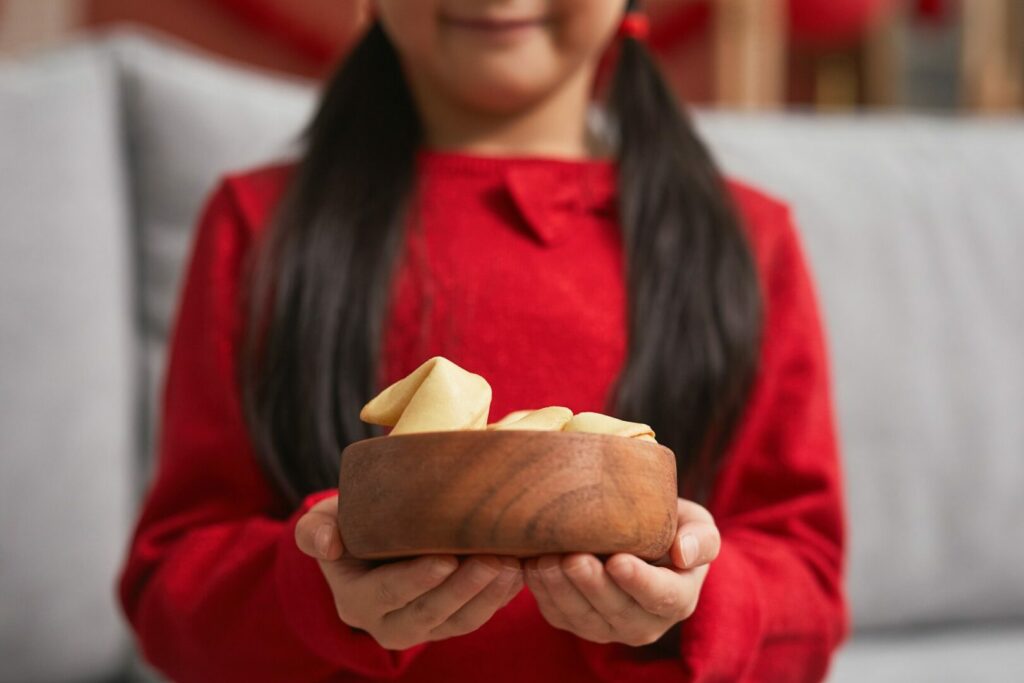
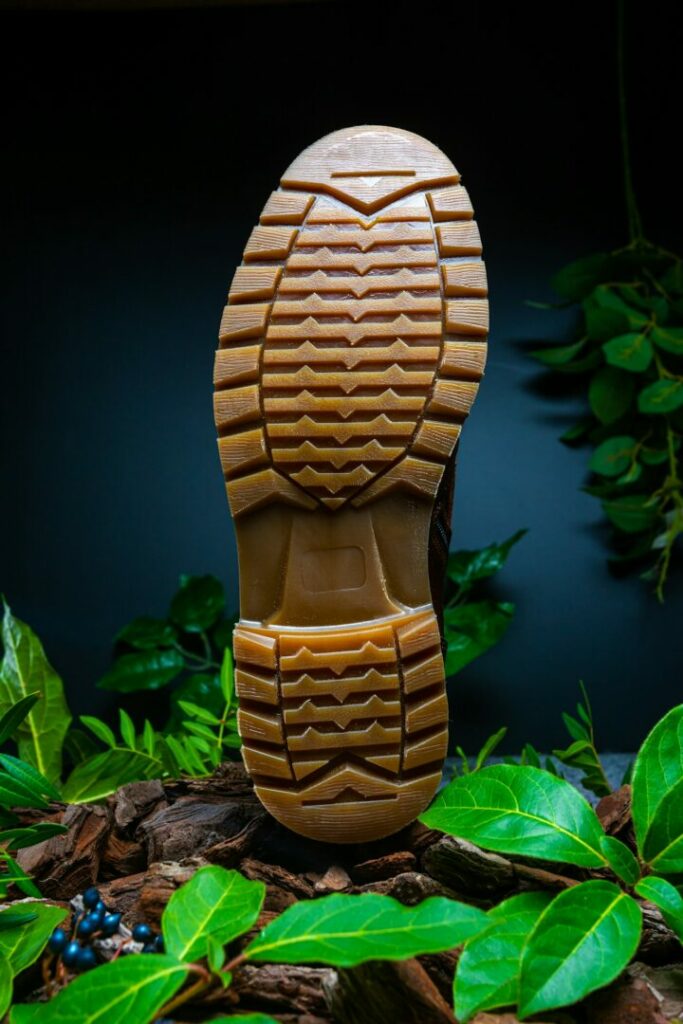
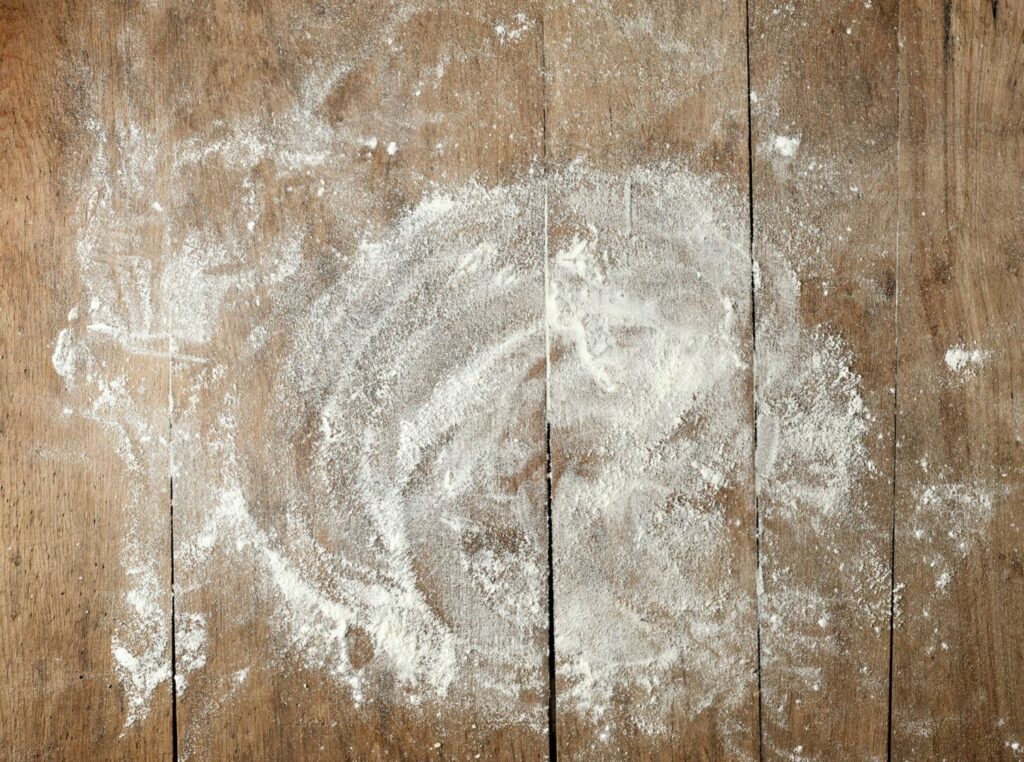
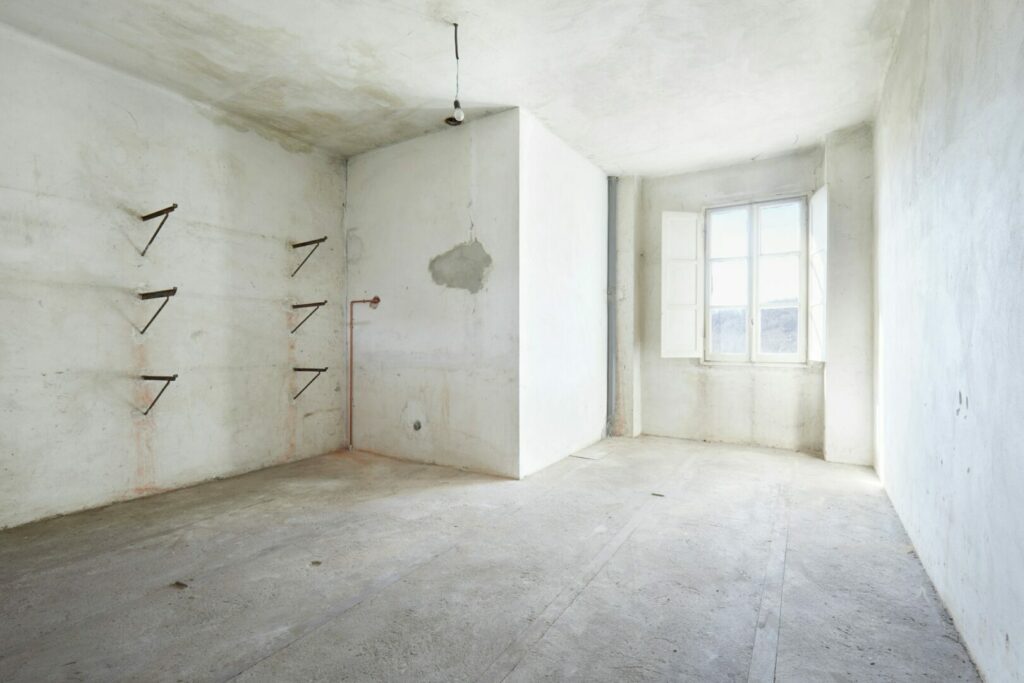
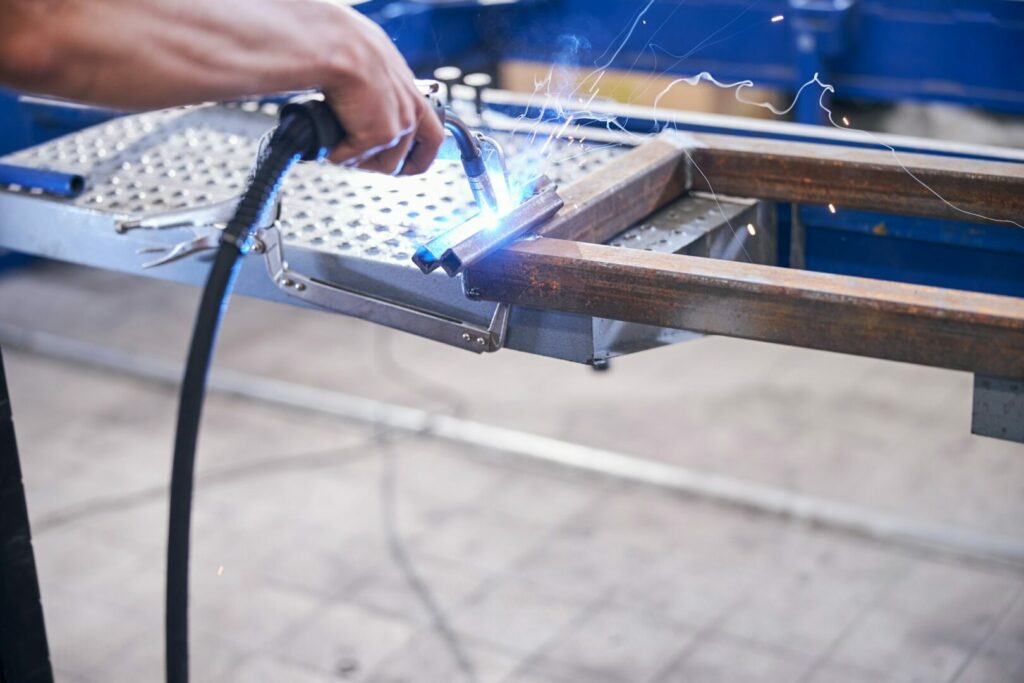
JELUCEL® Cellulose Filler (cellulose content range of 80% up to 99.5%, available in powder or fibres, different whiteness grades, varying grain sizes or fibre lengths)
JELUXYL® Wood Filler (produced from softwood or hardwood, light yellow to light brown colour, available in flour, powder, fibres or granules)
| o Cellulose and wood fibres used as fillers for floor coverings Wood flour is commonly used in the production of Linoleum, Rubber floor coverings with high anti-wear properties, and stone wood floors such as inorganic, magnesite-based industrial floors of the highest load-bearing capacities o Wood flours used as additives for cardboard Functional wood flours have been used as additives in cardboard for many years to obtain better cardboard qualities. JELUXYL® wood flours compensate lower quality levels of the raw material (waste paper) used in the production of cardboard and improve the volume and bulk of the board, as well as strength properties and accelerate the drying time on the board machine and generally optimize machine runnability. o Cellulose and wood flours for cleaning agents JELUXYL® and JELUCEL® products are used in dry carpet cleaners, fur cleaners (special sawdust), hand-washing pastes and hand cleaners (as natural abrasives), metal cleaning components (tumbling / de-edging), WC sticks and detergent tablets (super-disintegrant). o Functional cellulose and wood flours used as additives for seed pilling Seeds, especially sugar beet seed, are manufactured in pills to optimise economical application and strength resistance, and to improve growth. Wood flours such as found in our JELUXYL® range, and cellulose fibres such as our JELUCEL® products, are successfully used as functional carriers in this application to improve water absorption, water retention and water release, and in the “carriage” of other additives. o Cellulose and wood flours as natural additives for rubber manufacture JELUCEL® and JELUXYL® products are commonly used to produce rubber shoe soles, rubber sheets, solid rubber wheels and many other similar applications. o Wood flours as natural additives for explosives JELUXYL® wood flour is used as a carbon component in explosives, especially for quarrying and mining of industrial raw materials. o Cellulose as natural additive in enzymes JELUCEL® cellulose is used as a carrier in the production of detergent enzymes (proteases), as well as food enzymes. And many more applications… |

